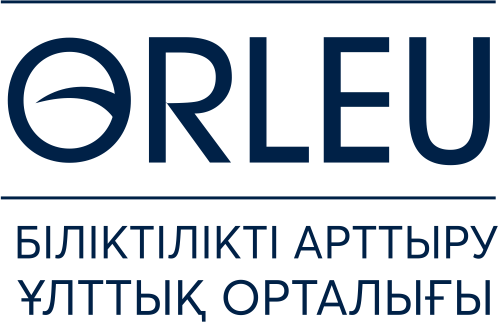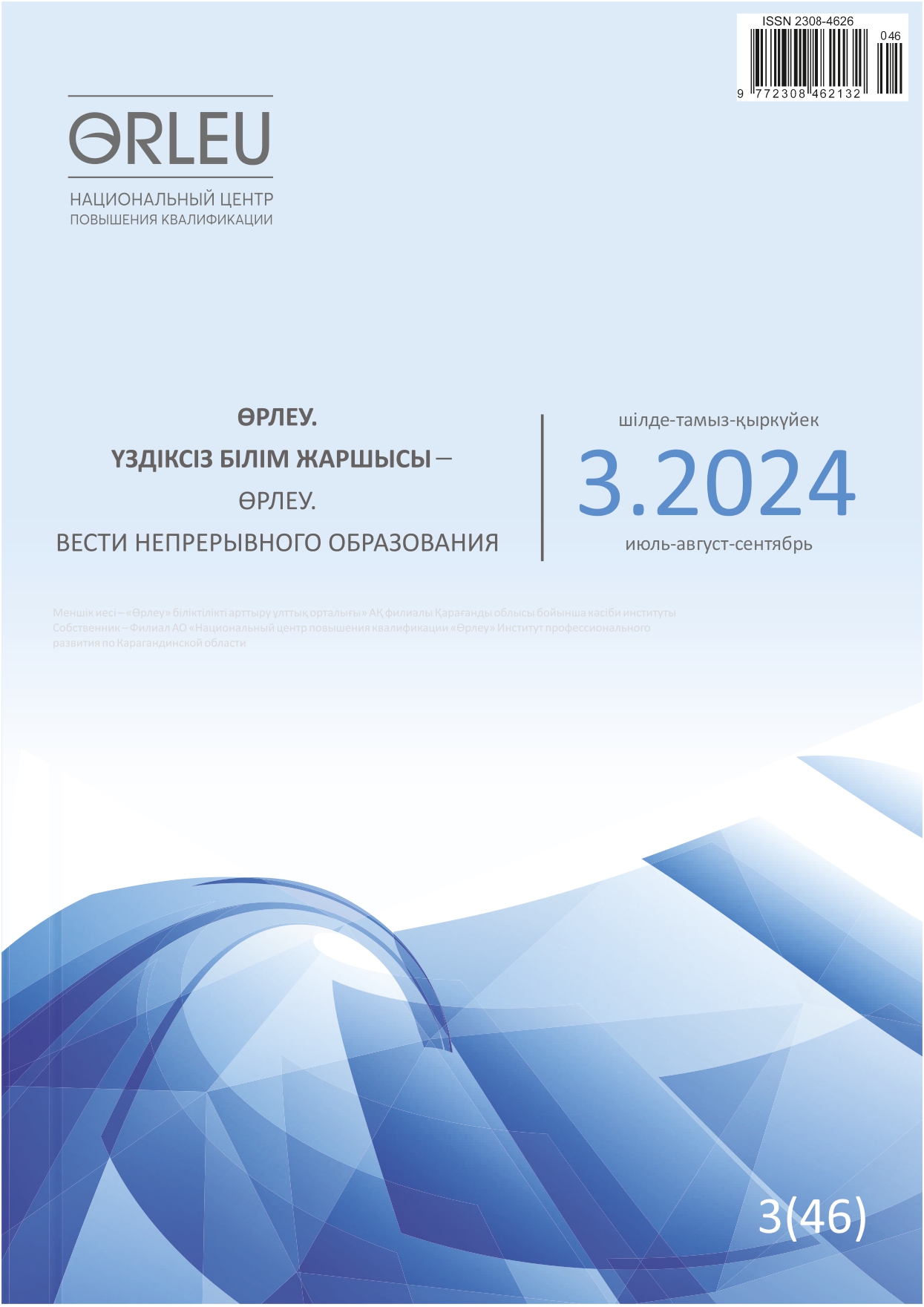Аңдатпа
This article discusses the problem of reflection with a critical eye on oneself, the ability to direct one's capabilities in accordance with the requirements of life, clarify the purpose, formulate thoughts. The topic of pedagogical reflection is touched upon. The topic of pedagogical reflection, i.e. a means of professional development of a teacher is touched upon.
The main purpose of the article is to explain the need for scientific justification and practical reflection as a factor of professional self-improvement of a teacher.
This study examines the development of pedagogical reflection as viewed by several scholars, including Abai (Ibrahim Qunanbayev), T. Borton, J. Smith, J. Bain, R. Bolotin, S. Mille, S. Brownhill, D. Schön, A.N. Leontyev, O.A.Abdulina, N.V. Kuzmina, Y.N. Kulyutkin, V.V. Serikov, V.A. Slastenin, and L.F. Spirin. Their perspectives and opinions on pedagogical reflection were taken as a basis for the article. The article explores Borton’s reflective approach, reflection methods based on Smith's program, and Gibbs' cycle, all of which serve as tools for teachers' professional development. The theoretical analyses conducted in the article focus on ensuring the direction and content of teachers' growth processes.
The authors of the article determined through theoretical and practical analyses that a teacher's reflection is essential for ensuring the direction and content of the teacher's growth process. In this regard, pedagogical reflection is not only about evaluating oneself and one’s actions but also involves observing how other educators understand themselves in pedagogical interactions, facilitating self-awareness and the ability to identify one’s strengths and weaknesses.

